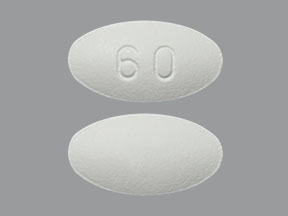Osphena and Alcohol/Food Interactions
There are 2 alcohol/food/lifestyle interactions with Osphena (ospemifene).
Ospemifene Food
Moderate Food Interaction
Food significantly increases the absorption of ospemifene. You should take ospemifene with a meal, preferably at the same time each day. Taking it on an empty stomach may lead to inadequate blood levels and reduced effectiveness of the medication.
Ospemifene High Cholesterol (Hyperlipoproteinemia, Hypertriglyceridemia, Sitosterolemia)
Major Potential Hazard, Moderate plausibility
ospemifene - cardiovascular disorders
There is a reported increase of stroke and deep vein thrombosis (DVT) in postmenopausal women receiving oral conjugated estrogens. Ospemifene should be prescribed for the shortest duration consistent with treatment goals, weighting risks and benefits for each woman. Ospemifene is contraindicated in women with active DVT, pulmonary embolism, active arterial thromboembolic disease (such as stroke or myocardial infarctions), or a history of any of these conditions. Other risk factors for cardiovascular disorders and/or venous thromboembolism such as hypertension, diabetes, smoking, hypercholesterolemia, obesity, lupus erythematosus (in personal or family history), should be evaluated and managed appropriately.
References
- (2013) "Product Information. Osphena (ospemifene)." Shionogi USA Inc
Osphena drug interactions
There are 88 drug interactions with Osphena (ospemifene).
Osphena disease interactions
There are 4 disease interactions with Osphena (ospemifene) which include:
More about Osphena (ospemifene)
- Osphena consumer information
- Check interactions
- Compare alternatives
- Pricing & coupons
- Reviews (45)
- Drug images
- Side effects
- Dosage information
- During pregnancy
- Generic availability
- FDA approval history
- Drug class: selective estrogen receptor modulators
- En español
Related treatment guides
Drug Interaction Classification
| Highly clinically significant. Avoid combinations; the risk of the interaction outweighs the benefit. | |
| Moderately clinically significant. Usually avoid combinations; use it only under special circumstances. | |
| Minimally clinically significant. Minimize risk; assess risk and consider an alternative drug, take steps to circumvent the interaction risk and/or institute a monitoring plan. | |
| No interaction information available. |
Further information
Always consult your healthcare provider to ensure the information displayed on this page applies to your personal circumstances.


